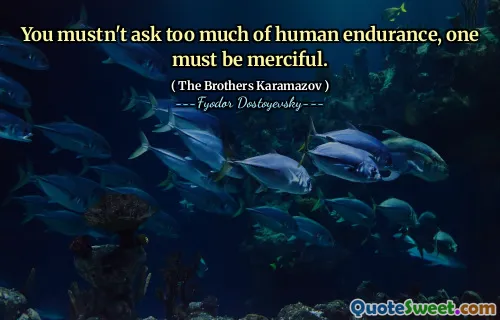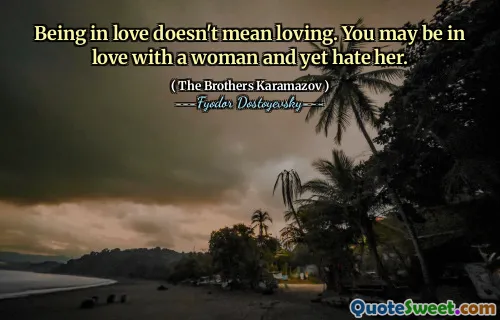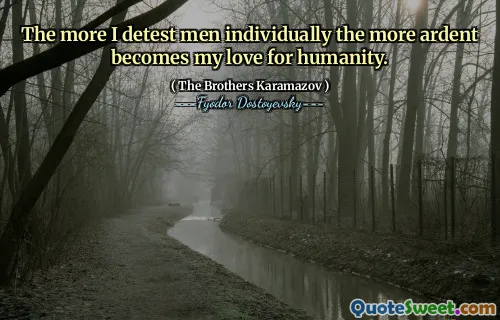
You mustn't ask too much of human endurance, one must be merciful.
This quote highlights the delicate balance between human resilience and compassion. It acknowledges that while humans possess remarkable strength and endurance, there are limits to what they can bear without suffering. For society to thrive and individuals to maintain their dignity, a dose of mercy and understanding must temper the demands placed upon them. In "The Brothers Karamazov," Fyodor Dostoyevsky explores the complexities of human nature—ranging from suffering and guilt to love and forgiveness. This quote underscores the importance of exercising mercy not just towards others, but also towards ourselves. Recognizing human limits is crucial; it prevents exploitation, burnout, and despair. It encourages a compassionate approach, urging us to consider the emotional and physical toll our expectations and actions might impose. By advocating for mercy, the quote fosters empathy, reminding us that strength should not come at the expense of kindness or humanity. It is a call for humility and understanding, emphasizing that compassion often yields better outcomes than relentless demands. In broader societal contexts, this message resonates profoundly: policies, relationships, and social structures must incorporate mercy to foster genuine solidarity and peace. Ignoring human limitations risks chaos, breakdowns, and suffering. Ultimately, the quote reminds us that true strength lies in recognizing our vulnerabilities and acting kindly within those boundaries, ensuring that endurance is sustainable and dignity remains intact.











